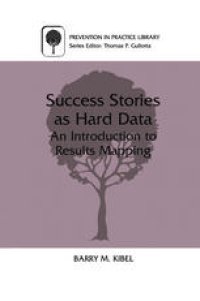
Ebook: Success Stories as Hard Data: An Introduction to Results Mapping
Author: Barry M. Kibel (auth.)
- Tags: Public Health, Epidemiology, Health Psychology, Methodology of the Social Sciences
- Series: Prevention in Practice Library
- Year: 1999
- Publisher: Springer US
- Edition: 1
- Language: English
- pdf
This book offers the first comprehensive introduction to Results Mapping, an in novative approach for assessing the worth of hard-to-evaluate social, health, and education programs. Results Mapping represents a true milestone in program evaluation-a milestone both as methodology for program accountability and as a technique for program improvement. It is relevant across a wide spectrum of pub lic health, social service, and systems-building initiatives. It introduces "new sci ence" into the field of program evaluation. It merges common sense with structured logic. It retains the richness of real world success stories without sacri ficing a hard-nosed focus on quantitative data and measurable outcomes. The contents of this book are directly pertinent for program leadership and staff, for sponsors and funders in the public and private sectors, and for those charged with assessing, documenting and analyzing the effects of program activ ity. Success Stories as Hard Data is designed to be readable, practical, and clear. Its author does not ignore previous scholarly work, but chooses to emphasize real world applications. For this Dr. Kibei is to be applauded.
This volume presents the first comprehensive introduction to Results Mapping, an innovative, story-based approach for assessing the worth of social, health, and educational programs. Unlike most forms of evaluation that are number driven, results mapping is story-based. Program staff are challenged to relate their most successful work with clients in structured formats that, in turn, are translated into outcome scores and related program measures. An invaluable tool for professionals, researchers and students who need to demonstrate outcomes for complex and difficult to evaluate programs.